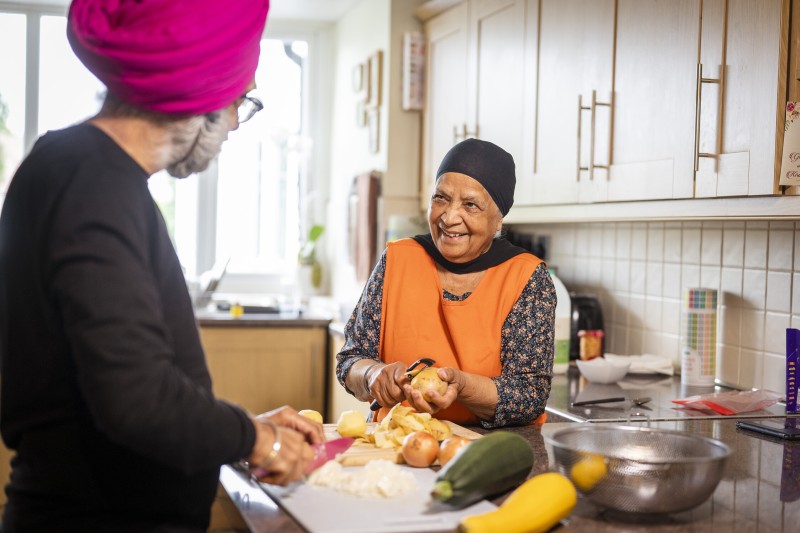New Research Project to Develop Resources Enhancing Nutrition Support for Older Individuals from Ethnic Minority Communities
A research project will develop new resources to help people from ethnic minority communities eat a healthier diet in older age.
The nuTritional heAlth aNd aGeing in oldER ethnIc miNoritiEs – or TANGERINE – project will be led by Bournemouth University in collaboration with the University of Chester and Loughborough University.
Eating a healthy, well-balanced diet is an important factor in maintaining good health as we age. Poor diet can also increase the risk of developing long term health conditions in later life, such as type 2 diabetes, high blood pressure and heart problems.
These conditions can be more prevalent in certain minority ethnic groups, including UK South Asian and Black African communities.
Funded by the Medical Research Council (MRC), the project will explore the factors that influence diet and how best to encourage older people from ethnic minorities to eat healthily.
Working with community partners, the team will produce and share a culturally-tailored toolkit with food-based recommendations, guidance and resources to support eating well.
Professor of Nutrition at Bournemouth University Jane Murphy, who is leading the project, said: “More people in the UK are living longer, but that does not mean that they have more years in good health.
“Nutrition is so important as we get older and we want look at how we can promote a healthy lifestyle and diet to support people to age well and live well.”
The research team will work in partnership with older people from UK South Asian, Black African, and Caribbean communities to understand more about the factors that influence whether someone is eating well.
Participants will be asked to take photos sharing their experiences, with the information provided helping to develop the toolkit and guidance.
Dr Hibbah Osei-Kwasi, Lecturer in the School of Sport, Exercise & Health Sciences at Loughborough University, said: “We will work together with people in the Black African, Caribbean and South Asian communities. These partnerships are important so that we can design culturally sensitive and sustainable food-based interventions.”
Professor Basma Ellahi, from the University of Chester’s Department of Social Work and Interprofessional Education, added: “Staying well as we get older is important for us all. We aim to develop culturally tailored approaches we can use to ensure families, communities and professionals can work more effectively with older people from minoritised ethnic communities to help improve their nutritional health through the food they eat.”


 Image: Centre for Ageing Better
Image: Centre for Ageing Better